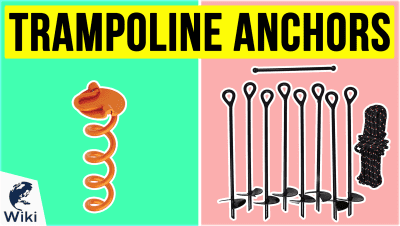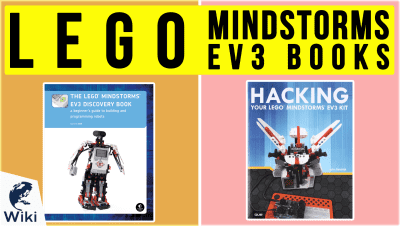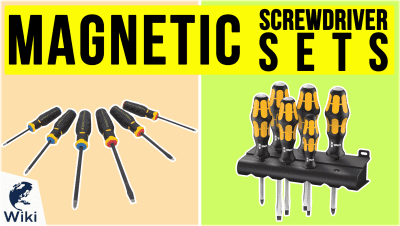6 Organizations That Provide Helpful Resources For Teachers
Teaching kids can be a rewarding experience, but it's also a lot of work. Luckily, organizations like the ones listed here work to provide teachers with educational material that's informative and engaging, so you can supplement your lesson plans with books, media literacy courses, conversations with scientists, and more. This video was made with Ezvid Wikimaker.
Groups That Provide Educational Resources
| Name | Description |
|---|---|
| Skype a Scientist | Matches scientists with people around the world, allowing them to have meaningful virtual interactions |
| NewseumED | Offers resources to cultivate First Amendment and media literacy skills |
| Population Education | Provides curriculum resources and professional development for K-12 educators that focus on human population issues |
| Teacher-Powered Schools Initiative | Highlights the successes of teacher-powered schools and inspires other teacher teams to either take charge in their schools or design and run new schools |
| Scholastic | Distributes & publishes chlildren's books and teaching resources |
| Living Maths | Works to provide entertaining learning experiences and build students' enthusiasm for knowledge |
The Four Types Of Learners
- Visual: Prefer to look at information and visualize concepts
- Auditory: Prefer to listen to information
- Reading/Writing: Prefer to absorb information through text
- Kinesthetic: Prefer to learn through hands-on experiments
Why Teachers Need to Connect With Kids
Toys & Games That Can Help Kids Learn
- Coding Robots
- Math Games
- Mechanical Puzzles
- Cranium Games
- Science Kits
- Telescopes
- Trivia Games
- Solar System Toys
- Talking Globes
High School Graduations Rates By State
As of the 2016-17 school year, according to the National Center for Educational Statistics
| State | Graduation Rate | State | Graduation Rate |
|---|---|---|---|
| Alabama | 89.3% | Montana | 85.8% |
| Alaska | 78.2% | Nebraska | 89.1% |
| Arizona | 78.0% | Nevada | 80.9% |
| Arkansas | 88.0% | New Hampshire | 88.9% |
| California | 82.7% | New Jersey | 90.5% |
| Colorado | 79.1% | New Mexico | 71.1% |
| Connecticut | 87.9% | New York | 81.8% |
| Delaware | 86.9% | North Carolina | 86.6% |
| Florida | 82.3% | North Dakota | 87.2% |
| Georgia | 80.6% | Ohio | 84.2% |
| Hawaii | 82.7% | Oklahoma | 82.6% |
| Idaho | 79.7% | Oregon | 76.7% |
| Illinois | 87.0% | Pennsylvania | 86.6% |
| Indiana | 83.8% | Rhode Island | 84.1% |
| Iowa | 91.0% | South Carolina | 83.6% |
| Kansas | 86.5% | South Dakota | 83.7% |
| Kentucky | 89.7% | Tennessee | 89.8% |
| Louisiana | 78.1% | Texas | 89.7% |
| Maine | 86.9% | Utah | 86.0% |
| Maryland | 87.7% | Vermont | 89.1% |
| Massachusetts | 88.3% | Virginia | 86.9% |
| Michigan | 80.2% | Washington | 79.4% |
| Minnesota | 82.7% | West Virginia | 89.4% |
| Mississippi | 83.0% | Wisconsin | 88.6% |
| Missouri | 88.3% | Wyoming | 86.2% |
Psychology Hacks To Become A Better Teacher
In Depth
One of the most important factors in education at all ages is engaging the interest of students. Fortunately there are more organizations than ever before dedicated to helping teachers supplement their lesson plans, spark enthusiasm in learners, and advocate for school reforms. Presented here, in no particular order, are six programs offering useful tools and materials for educators.
Starting off our list at #1 is Skype a Scientist. This program offers people around the world a chance to chat with professional researchers. The project's volunteers connect with classrooms, answering questions and giving students a look inside working laboratories. The initiative's purpose is to combat anti-intellectualism by letting kids engage with scientists face to face.
Originally created by squid biologist Sarah McAnulty, Skype a Scientist seeks to make researchers relatable, especially to young students. The program offers streaming events such as trivia nights, as well as real-life meetups, and has been profiled in media outlets including Nature and Forbes. Those wishing to support Skype a Scientist can donate, or buy themed merchandise from the online store.
The program offers streaming events such as trivia nights, as well as real-life meetups, and has been profiled in media outlets including Nature and Forbes.
Following up at #2 is NewseumED, a program offering free resources for First Amendment and media literacy education. Tools such as debating frameworks and lesson plans, drawing on real-world examples from history and current events, offer ready-made options that teachers can use to spark discussions in their classrooms. These materials are designed to foster critical thinking about issues like freedom of expression and truth in journalism.
Users of NewseumED can access informational videos, interactive tools, and historically significant photos. The program also provides online courses, covering topics such as restrictions on public speech, or civil rights history. Classes designed for educators discuss how to help students learn about concepts like evaluating objectivity in media, or the limits of First Amendment protections in schools. Individuals or institutions can support NewseumED as partners or sponsors.
Entry #3 is Population Education, a national program that provides assistance to teachers looking to help students understand issues related to human population trends. Their professional development workshops provide hands-on training for educators, tailored to specific grade levels and subjects. These classes prepare participants to teach a curriculum exploring the social, economic, and environmental factors that are impacted by the growth of the human species.
These classes prepare participants to teach a curriculum exploring the social, economic, and environmental factors that are impacted by the growth of the human species.
In addition to in-person workshops, Population Education offers an online course, and provides informational resources for use in classrooms. Their lesson plans and demonstration videos help educators make effective use of the program's curriculum. Experienced teachers can join the Trainers' Network, passing on what they've learned to others. The organization's online store sells educational units and resources, and supporters can help with donations.
Next up at #4 is the Teacher-Powered Schools Initiative. Based on the conviction that those doing the work of education are the best qualified to make decisions about the process, this project works to promote a model giving educators greater autonomy and authority in school operations. The organization highlights success stories of institutions that have made this shift, sharing feedback from students and teachers.
Ambassadors for the Teacher-Powered Schools Initiative advocate for placing collective leadership in the hands of educators, and the organization offers resources for those seeking to implement this model in practice. The group's annual National Conference brings together teachers from around the country to share their experiences, discussing ways to improve educational practices and student outcomes. The Initiative also publishes articles and shares stories making the case for their approach.
Ambassadors for the Teacher-Powered Schools Initiative advocate for placing collective leadership in the hands of educators, and the organization offers resources for those seeking to implement this model in practice.
Coming in at #5 is Scholastic, a company seeking to promote a love of literature in young learners. Offering numerous titles for children and young adults, they offer in-school Book Fairs that bring engaging and age-appropriate reading material directly to students. Scholastic offers advice for educators coordinating these events, and books sold there earn rewards that schools can use for free titles to expand their libraries.
Along with sales events, Scholastic provides Book Clubs through which teachers can receive discounts on popular titles for young readers; for students, they offer a Kids' Club featuring fun activities and information about books and authors. Educators can interest classes in authorship through the We Are Writers project, giving children the chance to create stories and see them in print, or browse the teaching resources Scholastic offers.
Concluding our list is #6, Living Maths. This South African mathematics-based enrichment program works to provide entertaining learning experiences, and build students' enthusiasm for knowledge. The group organizes school events like workshops that use games to promote math literacy, or sleepovers that combine fun, socializing, and skill-building. And their nationwide Olympiad gives students an opportunity for friendly academic competition.
This South African mathematics-based enrichment program works to provide entertaining learning experiences, and build students' enthusiasm for knowledge.
In tandem with their partners at Shikinah Media, Living Maths works to promote interest in STEM professions through events like their Space Tour, which enabled students to meet and interact with a career astronaut. The program also presents streamed interviews with researchers and other science and technology professionals, and provides online lessons for learners around the world.

















